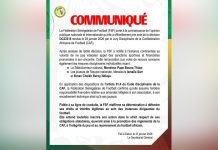Herbert Moyo
Africa-Press – Lesotho. IF there was a time that Lesotho needed the long-awaited judicial reforms, it is now, analysts say. The reforms, the analysts say, would go a long way in addressing the ongoing crisis in the Judicial Service Commission (JSC) which “clandestinely” sit and shortlist six candidates from an initial 36 who had applied for the seven vacant High Court judges’ posts.
The JSC sat on 22 July 2021 and shortlisted Fumane Malebana Khabo, Moneuoa Kopo, Realeboha Mathaba, Makhele Julius Sekati, Kuena Mabotsoa Thabane and Mamotselisi Khiba.
Adv Mathaba is a former Acting Commissioner General of the Lesotho Revenue Authority (LRA) while Mr Kopo worked as LRA Senior Manager: Internal Affairs.
Ms Khabo is Labour Court president while Mr Sekati works at the Law Office in the Ministry of Law and Justice. Ms Thabane is a former NUL law lecturer now in private practice.
Ms Khiba, a former LRA board member, is now in private practice. On the face of it, all six have basic credentials enabling them to meet the minimum requirements for appointment.
While all have the relevant law degree, only Ms Khabo appears to possess some form of experience in adjudicating cases in the courts as she is the Labour Court president.
Although the six meet the bare requirements, analysts say the nation has been denied the opportunity to know what made them stand out and beat a field of 30 other highly qualified candidates including all the country’s three Chief Magistrates ‘Matankiso Nthunya (central region), ‘Makampong Mokgoro (northern region) and Manyathela Kolobe (southern region).
“We do not know what criteria was used to shortlist those six people,” says Judicial Officers Association of Lesotho (JOALE) president, Peete Molapo, said in an interview with the Lesotho Times this week.
“I doubt there was any criteria in the first place. In the beginning, the recruitment process was transparent as people were given the opportunity to apply. But we were shocked when it got to the shortlisting stage. “The shortlist is highly questionable because none of the magistrates to have made it.
There are so many who qualify with over 15 years of experience and they ought to have been given the opportunity to prove themselves in the final interviews.
Even in terms of education, most magistrates have masters’ degrees. “This is why we say the criteria has shocked us, if ever it all it was there,” Magistrate Molapo said. The Law Society of Lesotho is equally flabbergasted.
Its president, Tekane Maqakachane, said they had since sought audience with JSC chairperson and Chief Justice Sakoane Sakoane to explain to them how the JSC arrived at the decision to shortlist the six candidates.
“As the Law Society, we had been made aware of the suspension of the recruitment process but a few days ago, we learned of the shortlisting of six candidates.
This caused our members to have several questions regarding the shortlisting and we have asked for an urgent meeting with the chief justice. “We have asked for this meeting to establish what transpired and that is all I can say for now,” Adv Maqakachane said.
JOALE and the Law Society are not the only ones questioning the opacity of the JSC’s recruitment processes which led to the shortlisting of the six. A lawyer, who spoke on condition of anonymity for fear of pre-empting the Law Society’s moves to unpack what really transpired, said the JSC had acted as though it had something to hide by continuously insisting on opaque processes to recruit the new judges.
He said the JSC’s stubborn insistence on opacity could only be dealt with through comprehensive judicial reforms which made it mandatory for it to conduct open and transparent recruitment processes.
“The JSC secretary (‘Mathato Sekoai)’s circular only indicates that the six were shortlisted after meeting the JSC criteria but it does not say what that criteria was,” the lawyer said.
“Nor does the circular say what the six actually did or what qualities people who have never judged a single case possess which places them above chief magistrates such as Nthunya who has been judging cases since 1996.
“The circular does not even say if all the four JSC members met. All this shows that the JSC has a propensity to lurch from one controversy to another regarding this recruitment exercise.
It has not learnt anything from former Acting Chief Justice ‘Maseforo Mahase and former Attorney General Haae Phoofolo’s 2020 clandestine session where they met on their own without the other two JSC members for their failed bid to recommend five people for appointment as new High Court judges.
As long as the reforms have not been implemented to ensure transparency at all stages, we will keep having such private sittings by some JSC members to push their own agenda,” the lawyer said.
Justice Mahase and Advocate Phoofolo had sat as the JSC on 20 August 2020 and recommended the appointment of new judges to ease the burden on the current eight who have more than 4000 cases to attend to.
The five recommended for appointment were Deputy Attorney General Tšebang Putsoane, lawyers Tšabo Matooane, Mokhele Matsau, Maliepollo Makhetha and Kopo.
At the time, authoritative government sources told this publication that King Letsie III refused to appoint the five and ordered the JSC to reconvene with all its four members in attendance. The JSC comprises of the chief justice, the attorney general, the chairperson of the Public Service Commission and a nominated judge.
“A sitting of all the members of the JSC,” one of the sources said, “would ensure that the names recommended to His Majesty for appointment as judges are based on a wider consensus rather just two members (Justice Mahase and Advocate Phoofolo)”.
The issue sparked a fierce row between the JSC and the then Law and Justice Minister, Nqosa Mahao. Professor Mahao accused Justice Mahase and Advocate Phoofolo of “clandestinely” recommending the five candidates for appointment without consulting him as the responsible minister.
He said their actions were contrary to the government’s stated commitment to transparent processes when appointing any new judges. He said under the envisaged judicial reforms, there would be a much more public and vigorous process of vetting any potential appointees to the bench as is done in South Africa.
JSC secretary, Adv Sekoai, insisted that there was nothing amiss about Justice Mahase and Advocate Phoofolo sitting and nominating their five candidates on their own and without even informing the responsible minister.
Adv Sekoai accused the government of interfering with the JSC’s work of recruiting new judges. She said the JSC was not required to inform the government before recommending anyone for appointment.
To buttress her arguments, she even quoted Section 132(8) of the constitution which states that “the JSC shall not be subjected to any control or direction of any other person or authority”.
“Section 132(10) states that the JSC may continue its business in the absence of other members. Rule 5 of the JSC rules states that two members form a quorum as long as they agree on the subject of the day.
“In the laws I have quoted above, none of them talk about the role of the government in the nomination of judges. I do not know of any law which gives the government the power to interfere with the appointment of judges,” Adv Sekoai said at the time.
She was right that the current laws do not require the JSC to get the government’s approval for the nomination of prospective judges. Nor does the law prevent any other two members of the JSC from sitting and making recommendations for appointment by King Letsie III.
But as pointed out by another lawyer who also spoke on condition of anonymity, this exactly why the judicial reforms are urgently needed to repeal all the existing bad laws which allow any two JSC members to make such crucial recommendations “on the basis of their personal whims and caprices which they do not even have to disclose to anyone”.
“The reforms are needed to amend the laws which provides for the establishment of such a small, unrepresentative JSC consisting of only four members to the exclusion of other stakeholders including the Law Society of Lesotho and the magistrates.
“The reforms should also ensure that all stages of the recruitment process are done in a transparent manner with reasons provided for the shortlisting of candidates and the dumping of others.
Transparency can’t just begin at the end when final interviews are being conducted as Adv Sekoai says in her circular. We need to the special qualities that caused the six to be selected over old judicial warhorses like Magistrate Nthunya who has been in the trenches since 1996.
Without a transparent process we are left to think that the JSC picked their friends and punished those they don’t like,” the lawyer said. Lawyer, Thulo Hoeane, has previously questioned the opaque recruitment process and called for transparency.
Commenting on Justice Mahase and Adv Phoofolo’s August 2020 meeting which led to the abortive recommendation of the five candidates, Adv Hoeane said it was “one of the most unfair processes that I have ever seen in this country”.
Adv Hoeane said while some might take a legalistic view and say the two JSC members were well within their rights, the issue of the appointment of judges was “much broader than that”.
“Judges must be people of integrity that the nation has full confidence in. Engendering public confidence begins with the appointment process which must be transparent and free of controversy.
“The judiciary is in disarray and it goes without saying that there is a shortage of judges. But this is not the way to go about addressing that issue,” Adv Hoeane said.
He said the recruitment process had to be transparent to ensure that inexperienced people with questionable credentials are not elevated at the expense of seasoned professionals.
“Chief Magistrate ‘Matankiso Nthunya is a case in point. She is a more than qualified to be a judge and deserves it but her juniors are often promoted to the bench at her expense.
“There are many senior lawyers who are more than qualified for the position as well.
It is therefore important that the recruitment process is transparent so that every deserving individual has a fair chance to be promoted,” added Adv Hoeane.
In his May 2021 article, which appeared in the online The Conversation publication, respected law lecturer, Professor Hoolo Nyane, underscored the need for judicial reforms even where it came to the recruitment of judges.
“It is vital that the reforms recast the relationship between the executive and judicial branches of government to reduce the executive’s excessive powers over the judiciary, including the appointment of judges.
The JSC, as the buffer between the two branches, will also have to change. Its composition, processes of appointment and powers over the judicial officers will have to change significantly.
Its membership will have to be more diverse and reduce executive dominance,” said Prof Nyane, the Head of Public and Environmental Law Department at the University of Limpopo.
https://lestimes.com/only-judicial-reforms-can-stop-opaque-judges-appointments-analysts/
For More News And Analysis About Lesotho Follow Africa-Press






